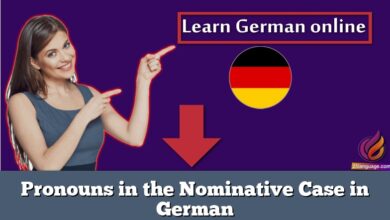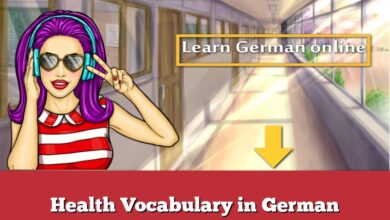meeting new people phrases in German

Meeting new people phrases in German are useful for various reasons, particularly when you find yourself in a German-speaking country or interacting with German speakers. Here are a few reasons why learning phrases for meeting new people in German can be beneficial:
- Cultural exchange: When you meet new people, especially locals, it’s an opportunity to engage in cultural exchange. Learning phrases in German allows you to initiate conversations, show interest in their language and culture, and create a connection based on shared understanding.
- Breaking the ice: Meeting new people can sometimes feel a bit awkward or intimidating. Knowing how to greet and introduce yourself in German helps break the ice and makes the initial interaction smoother. It demonstrates your effort to communicate in their language, which is often appreciated and can foster a positive atmosphere.
| English Phrase | German Phrase |
|---|---|
| Hello! | Hallo! |
| Nice to meet you! | Schön, dich/Sie kennenzulernen! |
| What’s your name? | Wie heißt du/heißen Sie? |
| My name is [your name]. | Ich heiße [dein Name]. |
| Where are you from? | Woher kommst du/kommen Sie? |
| I’m from [your country]. | Ich komme aus [deinem Land]. |
| What do you do for a living? | Was machst du/machen Sie beruflich? |
| I work as [your profession]. | Ich arbeite als [dein Beruf]. |
| What brings you here? | Was führt dich/führt Sie hierher? |
| I’m here on vacation/business/studying. | Ich bin hier im Urlaub/Geschäft/um zu studieren. |
| Do you speak English? | Sprichst du/Sprechen Sie Englisch? |
| Yes, I speak English. | Ja, ich spreche Englisch. |
| No, I don’t speak English very well. | Nein, ich spreche nicht so gut Englisch. |
| How long have you been here? | Wie lange bist du/sind Sie schon hier? |
| I arrived [number of days/weeks/months] ago. | Ich bin vor [Anzahl von Tagen/Wochen/Monaten] angekommen. |
| What are your hobbies? | Was sind deine/Ihre Hobbys? |
| I enjoy [your hobbies]. | Ich mag [deine/Ihre Hobbys]. |
| Can you recommend any good places to visit around here? | Kannst du/Können Sie mir gute Orte empfehlen, die man hier besuchen kann? |
| What’s your favorite German food? | Was ist dein/Ihr Lieblingsessen aus Deutschland? |
| My favorite German food is [your favorite dish]. | Mein Lieblingsessen aus Deutschland ist [dein Lieblingsgericht]. |
| Would you like to grab a coffee/drink sometime? | Hast du/Haben Sie Lust, mal einen Kaffee/ein Getränk zusammen zu trinken? |
| Yes, I’d love to! | Ja, sehr gerne! |
| No, thank you. | Nein, danke. |
Remember to adapt your language based on the formality of the situation. “Du” is used for informal situations with friends or people of the same age, while “Sie” is the formal way of addressing someone, typically used with strangers or in professional settings.




























